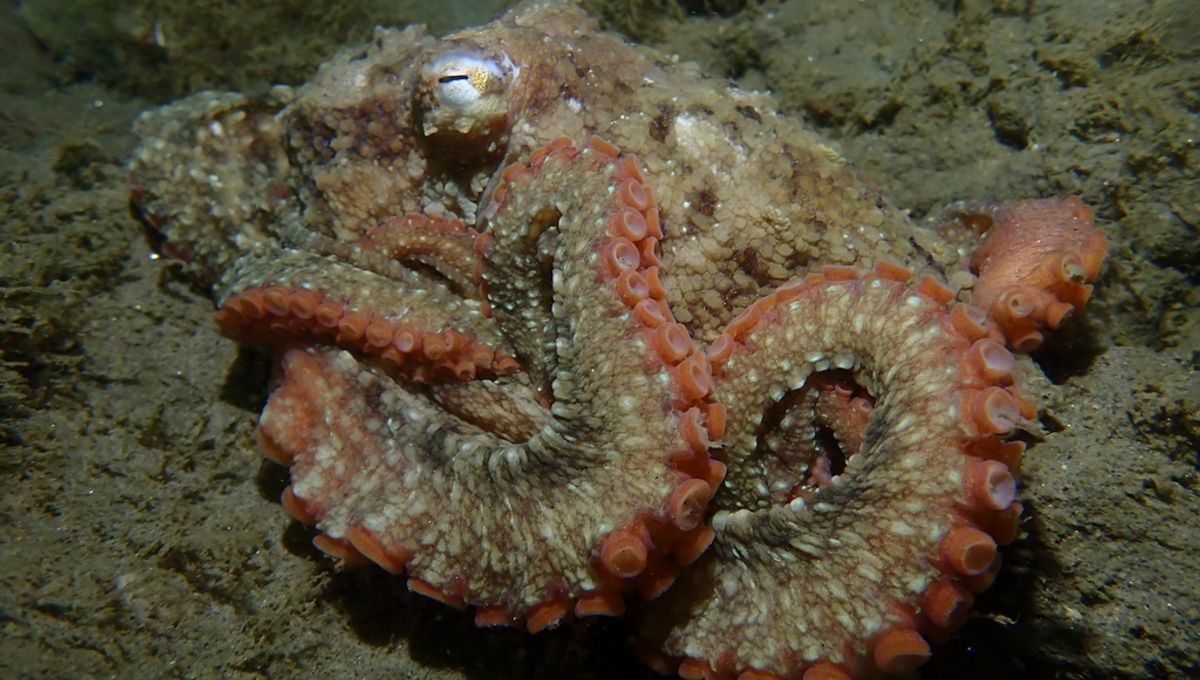
Everyone’s favorite smart, sentient “aliens” just got a whole lot weirder: Octopuses are able to recode proteins in their nerve cells to protect their brains from changes in temperature, new research has revealed. When things get chilly, the canny cephalopods tinker with their RNA – the messenger molecule between DNA and protein production – ensuring neurological activity can be maintained.
“We generally think that our genetic information is fixed, but the environment can influence how you encode proteins, and in cephalopods this happens on a massive scale,” senior author Joshua Rosenthal of The University of Chicago’s Marine Biological Laboratory said in a statement.
“RNA recoding gives organisms the option to express a diverse quiver of proteins when and where they choose. In cephalopods, most of the recoding is for proteins that are really important for nervous system function, so the natural question is, are they using this to acclimate to changes in their physical environment?”
Unlike mammals, which can generate their own body heat in response to temperature changes, octopuses don’t thermoregulate. This means that fluctuations in temperature, such as when they’re diving or with changes in season, pose a threat to their survival, rendering the ability to adapt essential. RNA editing offers octopuses a temporary and flexible way of achieving this, allowing them to produce different neural proteins in warm and cool environments.
The discovery of RNA editing in cephalopods is not new – it was first documented in squid in 2015 and, later, octopuses – but the purpose of it has remained a mystery.
“A big question for us was, ‘What are they using it for?’” Rosenthal said in another statement.
To investigate, the team acclimated wild-caught California two-spot octopuses (Octopus bimaculoides) to warm or cool temperatures. Two to three weeks later, they examined their RNA, finding that editing had occurred at over 20,000 sites.
“This is not something that happens here or there; this is a global phenomenon,” said co-senior author Eli Eisenberg of Tel-Aviv University. “But that being said, it does not happen equally: proteins that are edited tend to be neural proteins, and almost all sites that are temperature sensitive are more highly edited in the cold.”
Follow-up experiments revealed that RNA editing occurs surprisingly quickly: cold-induced editing was seen within hours, significant changes in less than a day, and a steady state was reached within four days.
The team also looked into the effect of all this on the function of two proteins, kinesin-1 and synaptotagmin, both of which play an important part in nervous system function. RNA editing, they found, altered the rate of kinesin-1 movement, and disrupted the responsiveness of synaptotagmin.
A fourth and final experiment demonstrated that RNA editing in response to temperature occurs in wild octopuses too, following seasonal temperature changes. This was reported in the California two-spot octopus, as well as Verrill’s two-spot octopus (Octopus bimaculatus), and the researchers believe it to be widespread among other octopus species and squid.
RNA editing in response to temperature change joins a long list of things you didn’t know these clever creatures could do, from having nightmares to creating incredible sites known as “Octopolis” and “Octlantis”. It could also help explain other facets of their behavior, including their ability to camouflage and solve puzzles.
“I think it’s the tip of the iceberg,” Rosenthal added.
The study is published in the journal Cell.
Source Link: RNA-Editing Octopuses Rewire Their Brains To Cope With Drops In Temperature